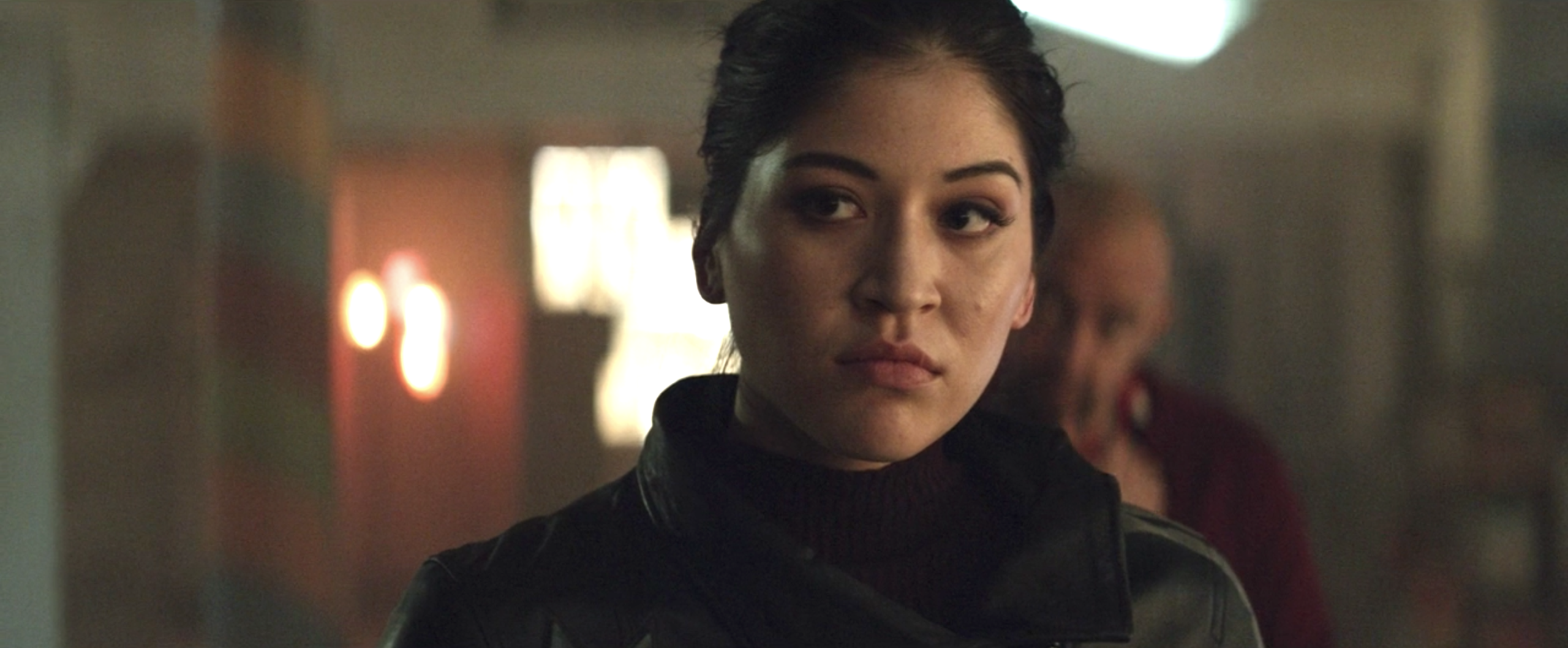The Marvel Cinematic Universe began as a superhero franchise with little diversity, at least when it came to lead actors and heroes. Thankfully that has continued to change for the better. With Zoe Saldaña, Michael Peña, Benicio Del Toro, Salma Hayek, Natalia Cordova-Buckley, Edward James Olmos (Agents of S.H.I.E.L.D.), and Rosario Dawson (via Marvel-Netflix shows featuring members of the Defenders), the MCU has featured a strong slate of Latinx actors.
With Maya Lopez (Alaqua Cox), the MCU adds a Native American actor to the mix. Cox is an actor of Menominee and Mohican Native American descent who is both deaf and an amputee, just like her character.
Cox didn’t have previous acting experience, was working at Amazon while auditioning for the part of Maya Lopez, and had dropped out of college. Her casting as Maya Lopez was celebrated by deaf and amputee communities alike, and the series never treated either of these conditions as a weakness for her. For those unfamiliar with Daredevil comics, Maya Lopez was always meant to be both deaf and Native American.
We first see Maya in her quest for revenge against Clint Barton and Kate Bishop, which technically would’ve made her into a villain. Thankfully, the series subverts our expectations when Clint explains to Maya the real reasons why her father died. His revelation changes her trajectory, showing us she was a hero the entire time. The character is even set to have her own spinoff, Echo, on DisneyPlus. It will surely answer any lingering questions fans may have after Hawkeye, such as what Maya does next with her newfound information, and what her relationship to the Avengers will be now that she’s embroiled in some of their schemes.
But Maya’s circumstances are complicated from the beginning. She has to deal with the fallout and grief of her father’s death, run the Tracksuit Mafia, take Kingpin’s orders, juggle her relationship with Enrique, and deal with everyday matters.
The holes in her information do lead Maya Lopez to make serious miscalls in judgment, including overlooking some of Enrique’s betrayals, and putting too much focus on Clint Barton. We never see Maya’s resolve falter, however.
In fact, there was never an episode or moment where Lopez was treated as less than, unworthy of love, or as powerless. In Lopez’s father, we saw a father figure who empowered his daughter and treated her differences as an asset, something not all children with disabilities have in their own parental figures. With that strong foundation, Lopez is able to fight for herself, even besting Clint Barton’s fighting from time to time, all while commanding respect from the Tracksuit Mafia, remembering the lessons her father taught her, and doing what she believes is right.
With Echo adding to Eternals, Hawkeye, and Daredevil, Marvel has been doing so much to increase the representation of heroes with hearing loss, blindness, and other conditions that are often treated as less-than-heroic. Along with increasing their portrayal of deaf characters, the MCU is also ensuring more characters speak and understand American Sign Language (ASL) and even pokes fun at the hassle of reading lips of hearing people.
It was a real treat to watch an empowered character such as Maya on the screen. As a person with what is considered an invisible disability and chronic illness, having better representation of deaf and amputee characters of color is a win for me.
But really it’s a win for all of us. In challenging Kingpin and his lies, Lopez represents the strength of people who challenge abusers and oppressive people. It’s my hope that these successful portrayals of diverse characters with disabilities continue to provide joy and meaningful representation for people who deal with these conditions, and that abled people can also love these characters and see their strengths. With the end effect being a deeper understanding and valuing of people with disabilities.

